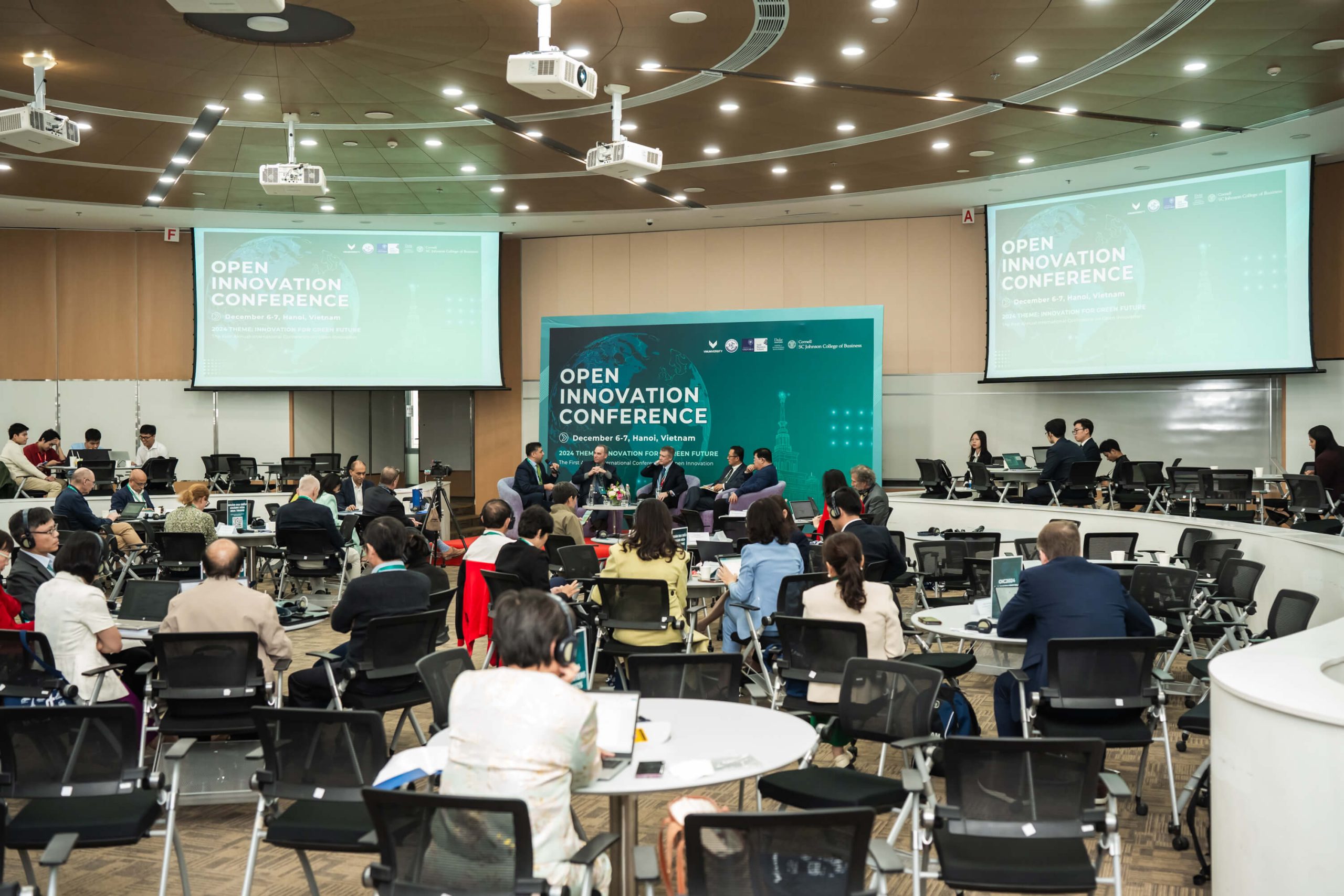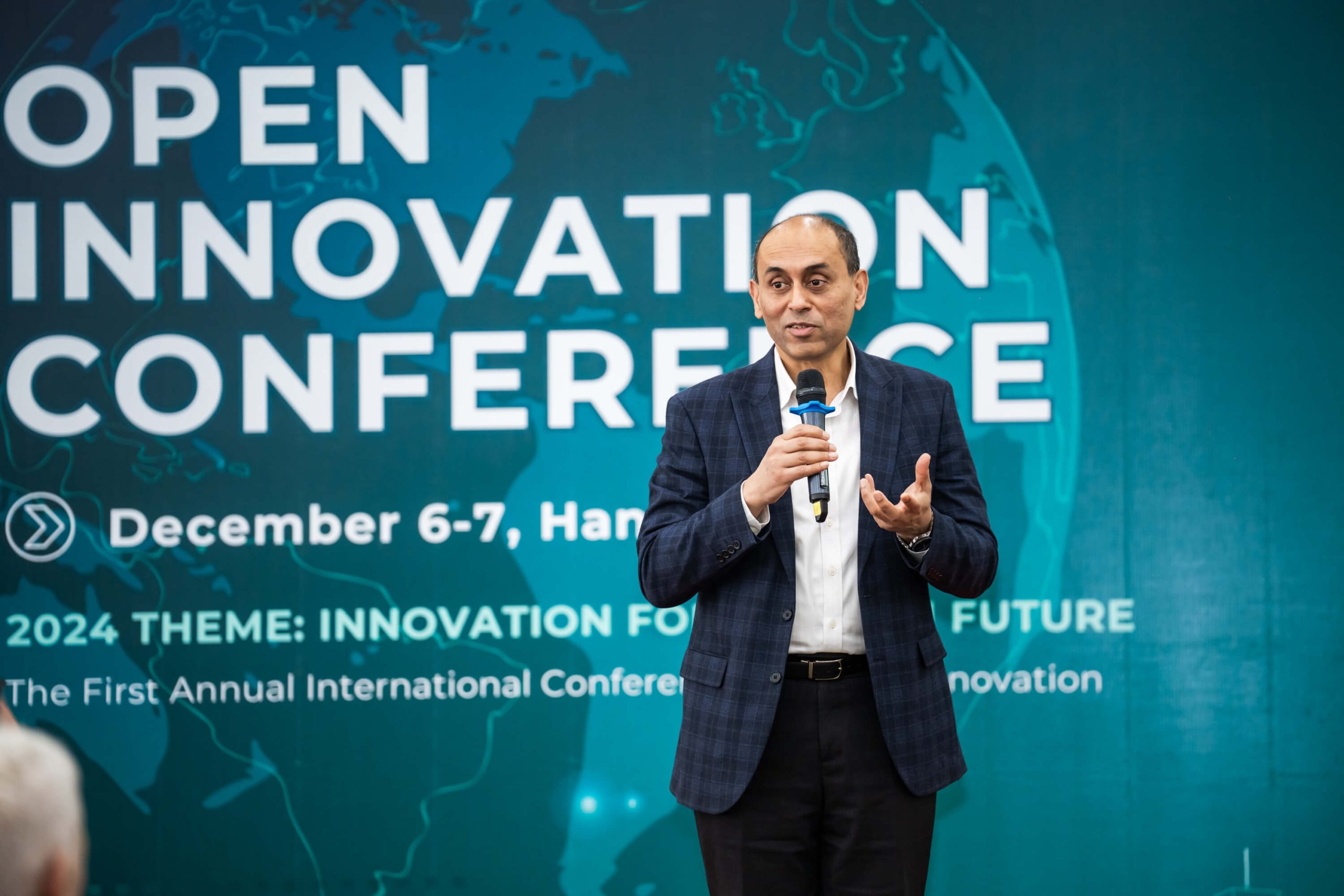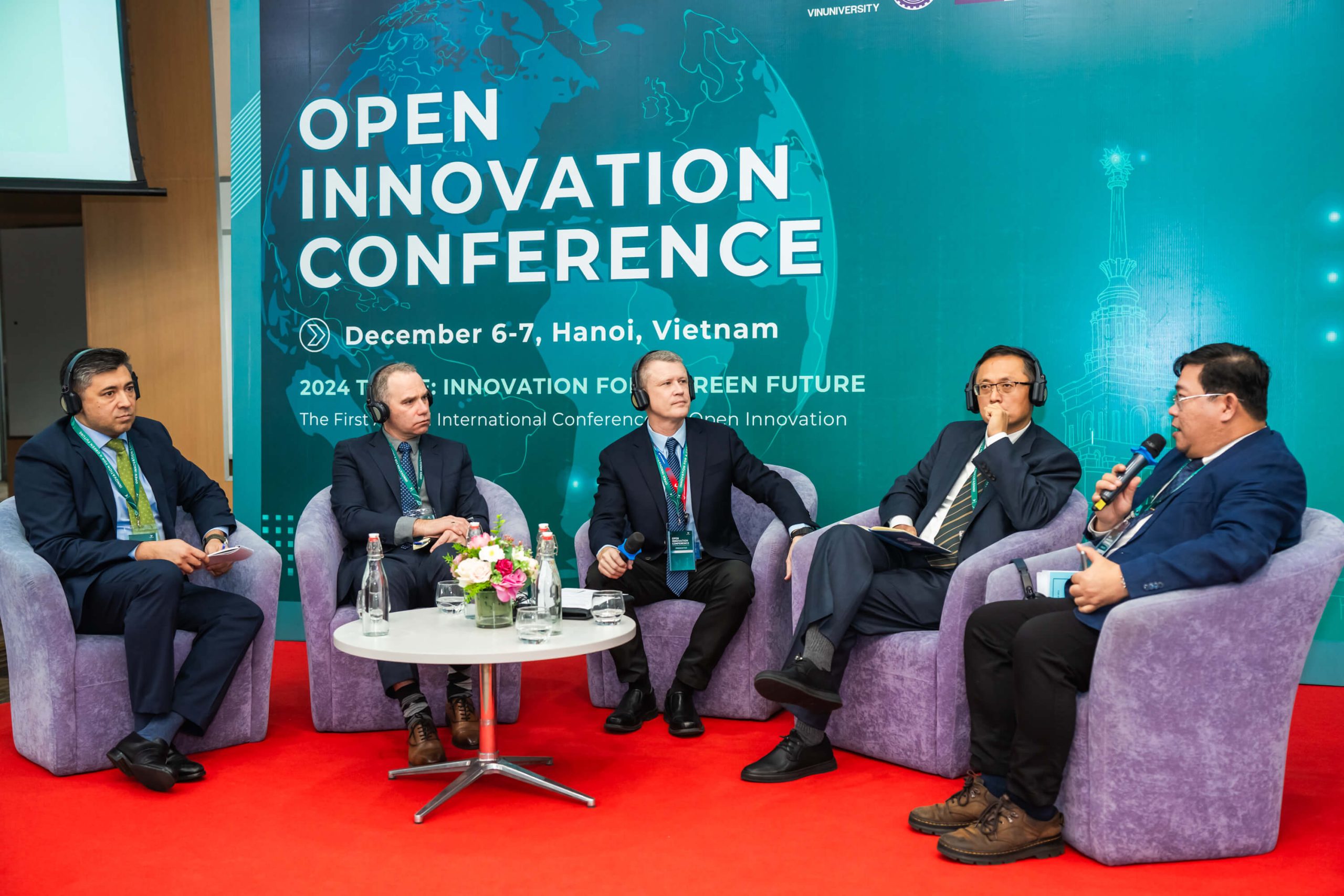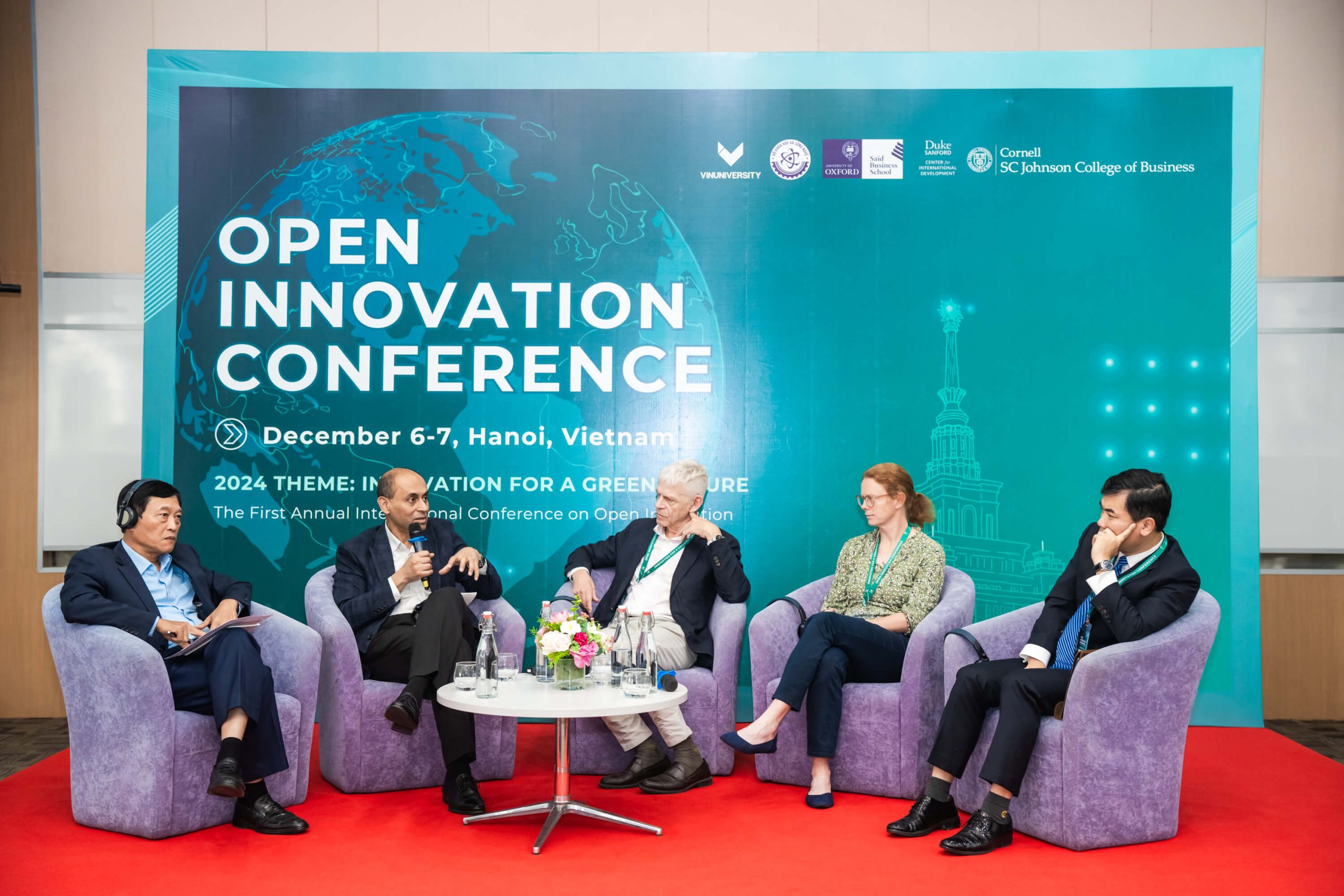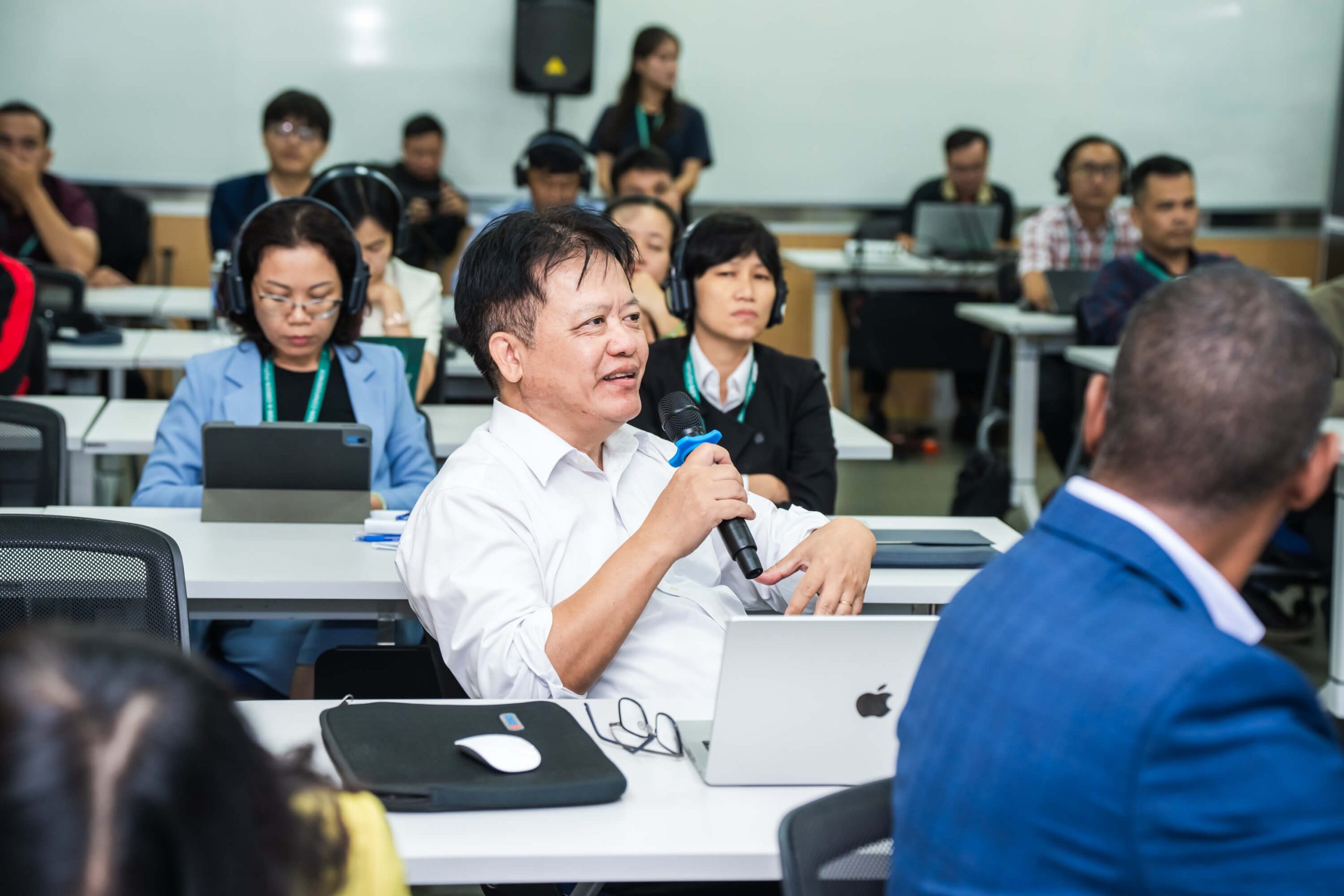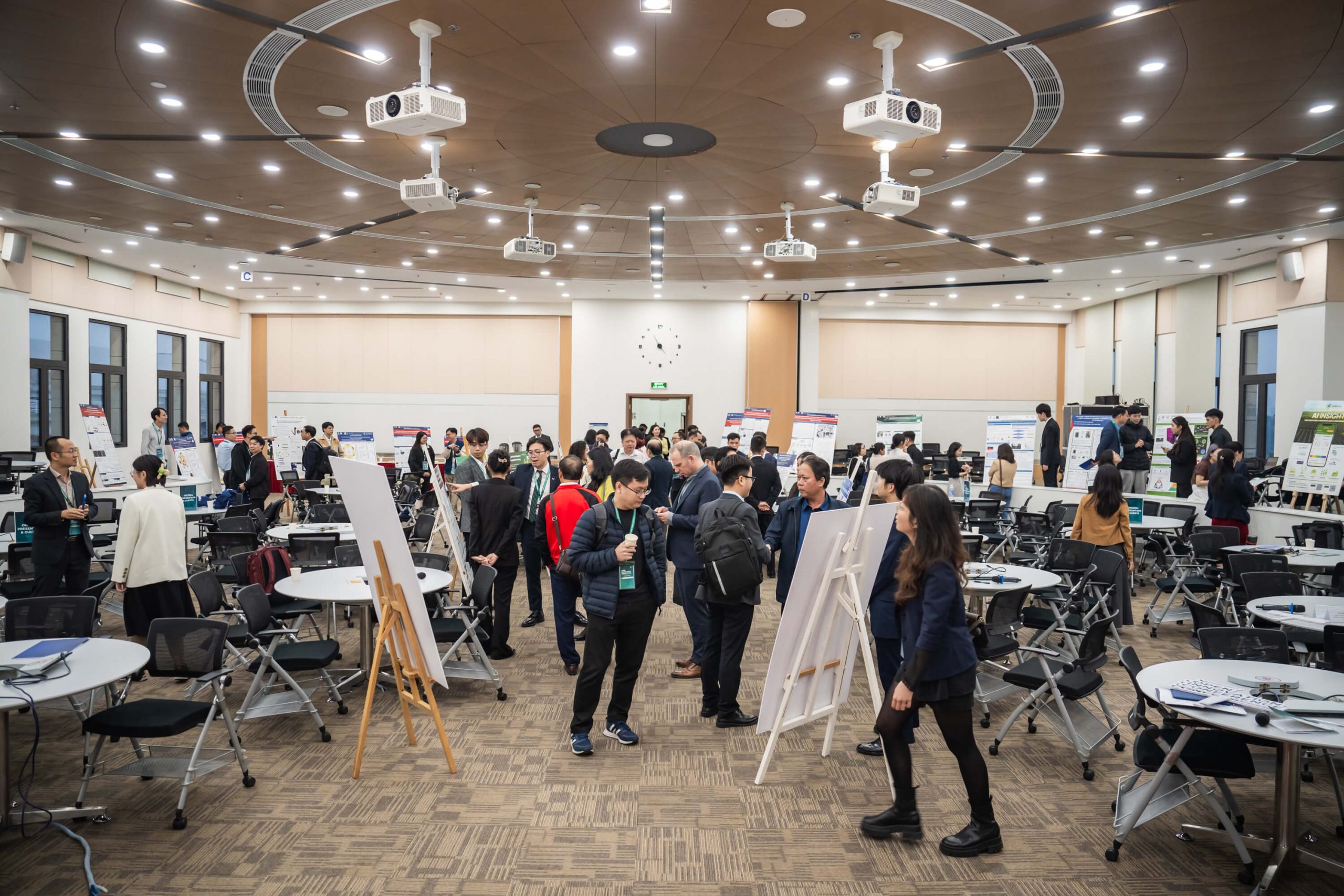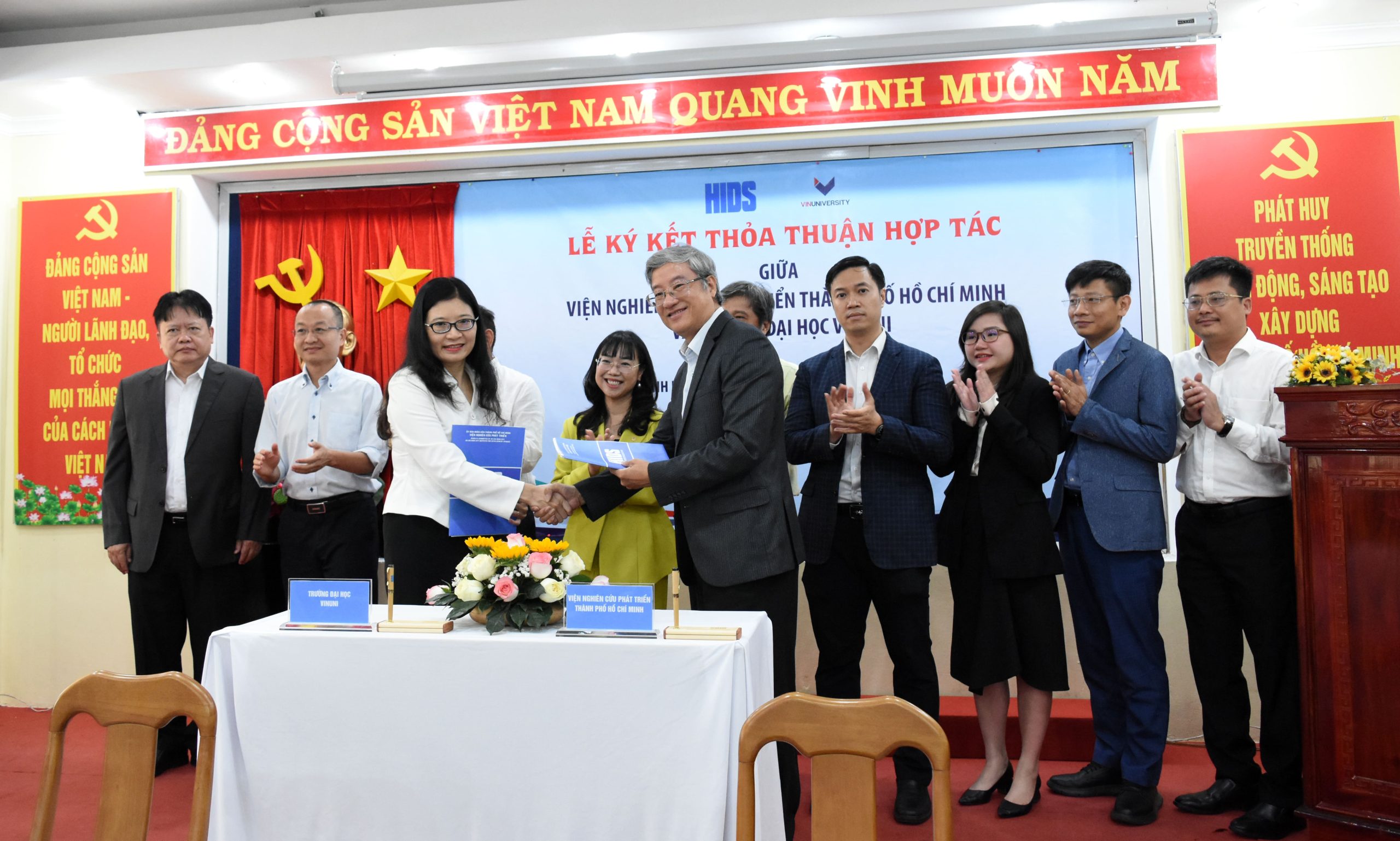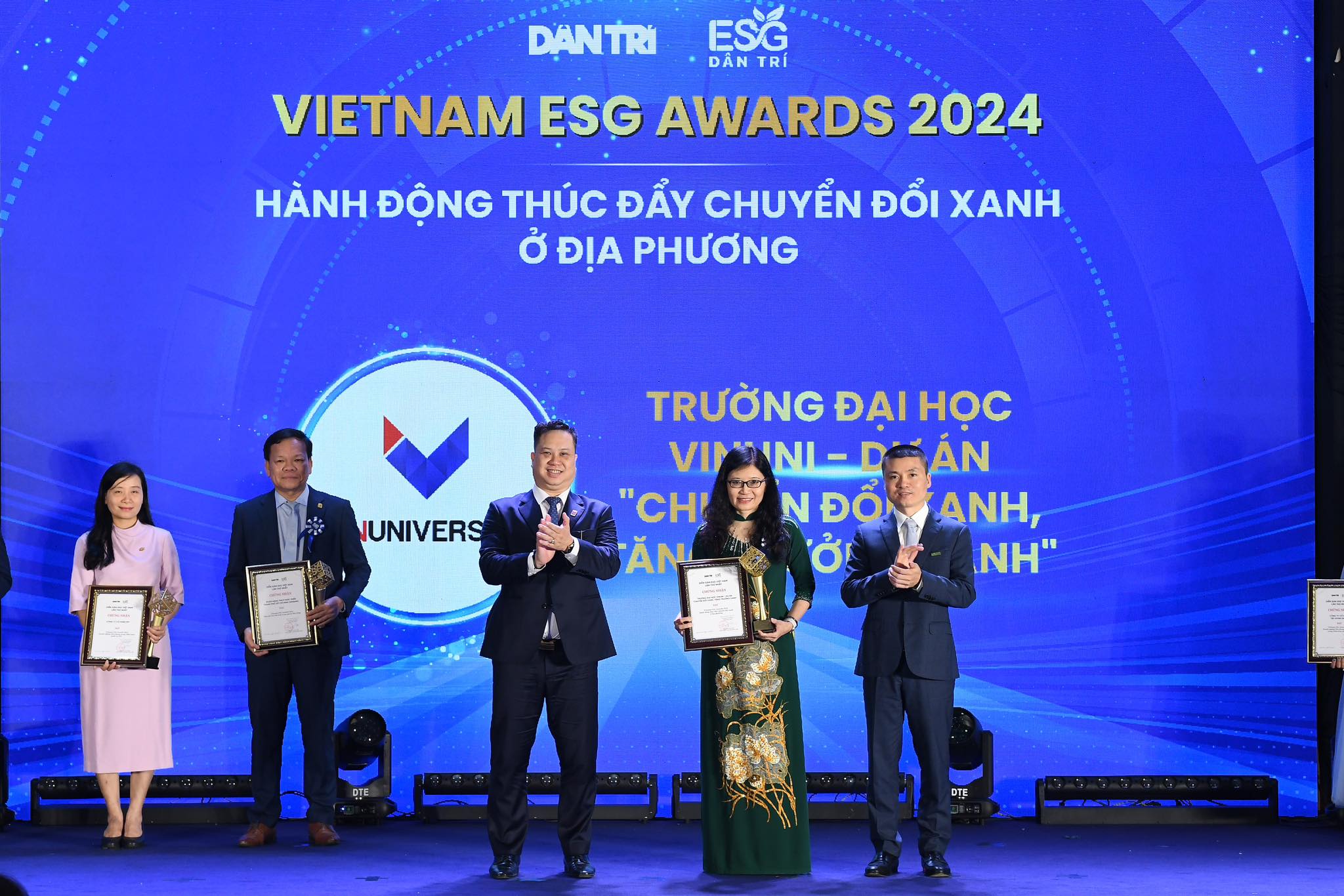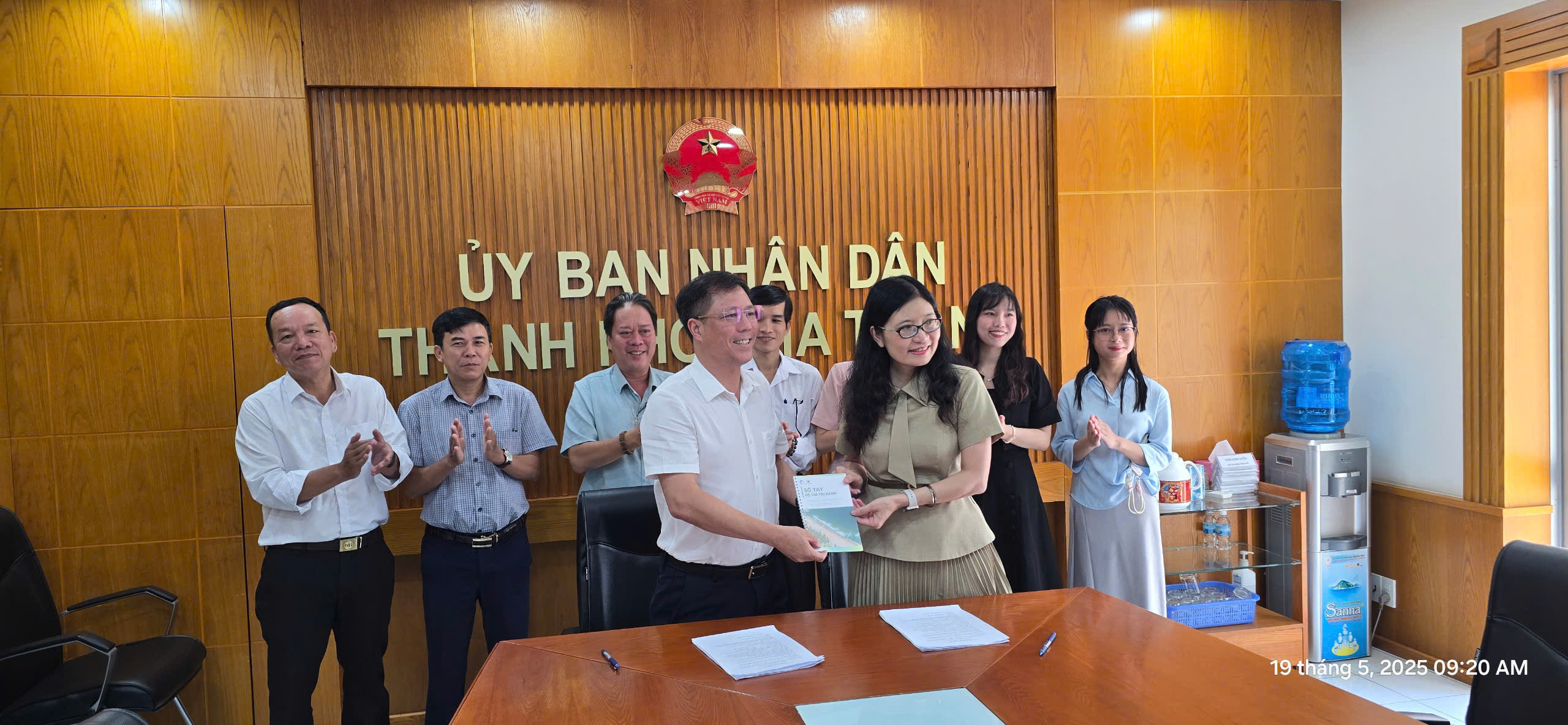
Open Innovation Conference 2024 Recap: Innovation for a Green Future
The Open Innovation Conference (OIC) 2024, hosted by VinUniversity, successfully concluded on December 7, 2024, in Hanoi, Vietnam, marking a significant milestone in the global conversation on sustainable innovation. This event was unique in its ability to bring together three essential perspectives: Academic Insight, Practical Application, and Global Perspective.
VinUniversity is the only institution to have pioneered an international conference that effectively combines all three elements, leading the way in decentralizing innovation strategies to drive green economic growth, from the national level down to local communities and businesses. The conference addressed the urgent need to implement green transformation and green growth strategies in various sectors, setting the stage for a sustainable future.
Three Key Perspectives of the Conference
- Academic Perspective:
Leading researchers explored several important themes related to green transformation. Key areas included:- Sustainable energy systems: Research on integrating renewable energy and storage solutions into power grids, especially in the context of electric vehicle charging infrastructure.
- Green finance: Studies on the role of AI in revolutionizing green finance education and its application in risk assessment for ESG (Environmental, Social, and Governance) strategies.
- AI in education: One study explored revolutionizing green finance education with AI, emphasizing how AI can transform educational methods in green finance, thus equipping the next generation of environmental leaders with the tools to manage sustainable financial systems.
- Sustainable materials: Research on the development of biodegradable and recyclable materials for various applications, from healthcare devices to energy storage.
- Practical Perspective:
Industry leaders and policymakers discussed key practical innovations that are driving green growth on the ground. Main themes included:- Green tourism: Efforts to implement sustainable tourism models, such as the use of electric vehicles and green accommodation to reduce the environmental footprint of the tourism industry.
- Smart transportation: Discussions around the development and expansion of electric bus networks and the electrification of two-wheelers to reduce emissions in Southeast Asia.
- Healthcare innovation: An example from the conference was the development of low-cost, degradable healthcare sensors for sustainable applications, addressing environmental concerns while enhancing healthcare access.
- Sustainable food production: The use of innovative technologies in aquaculture and sustainable farming practices to ensure food security while minimizing environmental impacts.
- Global Perspective:
Thought leaders from around the world shared their views on global trends in green transformation and innovation for sustainable growth. Notable themes included:- Global policy design: The importance of policy frameworks to support green growth, especially in emerging markets, and the role of green policies in shaping sustainable economies.
- International best practices: Lessons learned from global initiatives in electric vehicle adoption and sustainable manufacturing in both developed and developing countries.
- Green innovation ecosystems: How fostering innovation ecosystems that bring together startups, academia, and governments can drive sustainable solutions across industries.
- Climate change mitigation: How international collaboration on climate change mitigation strategies can foster innovation and support the global transition to a low-carbon economy.
Unlike other conferences, VinUniversity’s Open Innovation Conference provided a unique holistic approach, combining all three elements to create an impactful and comprehensive event. The global exchange of ideas among these three pillars laid the groundwork for future innovations that will help shape a greener, more sustainable world.
This year’s event was a dynamic blend of academic insights, practical applications, and global perspectives. Keynote speakers such as Professor Soumitra Dutta, Dean of Said Business School at the University of Oxford, and Professor Edmund J. Malesky, Director of the Duke University Center for International Development, shared their expertise on the role of innovation in fueling sustainable economic growth and developing policies to support green transitions.
The conference was further enriched by a distinguished panel of experts, including Professor Shanjun Li, Academic Director of the Cornell Institute for China Economic Research, Cornell University; Mr. Chau Ngo Anh Nhan, Director of the Department of Planning and Investment of Khanh Hoa Province; Mr. David Edgardo Falcon Adasme, Director of ESG at VinFast/VGR; Dr. Tran Van Tung, Former Vice Minister of the Ministry of Science and Technology; Assoc. Prof. Imke Reimers, Chair in Entrepreneurship, SC Johnson College of Business, Cornell University; and Dr. Le Ba Tan, Director of the Technical Division at Viettel. Their valuable contributions on policy, business, and sustainable development provided key insights throughout the conference.
In addition to the diverse perspectives, the conference featured 96 research papers from 250 authors across 12 countries, presented in 14 sessions, covering a wide range of topics in technology, business innovation, green policies, social and educational impacts, and more. Over 70 experts volunteered as peer reviewers, ensuring the high academic quality of the discussions. Furthermore, 37 innovative posters were displayed, showcasing cutting-edge research in green transformation and AI applications for sustainability, providing a platform for even more contributions to the green innovation movement.
The event concluded on a high note, reinforcing VinUniversity’s commitment to becoming a leading hub for academic excellence and innovation. The conference will continue to serve as a major platform for global collaboration on sustainable development, with a focus on green transformation and the role of innovation in solving global challenges.
We are already looking forward to OIC 2025, which promises to be even bigger, bolder, and more impactful, continuing to inspire and connect thought leaders, policymakers, and innovators for a greener future.

